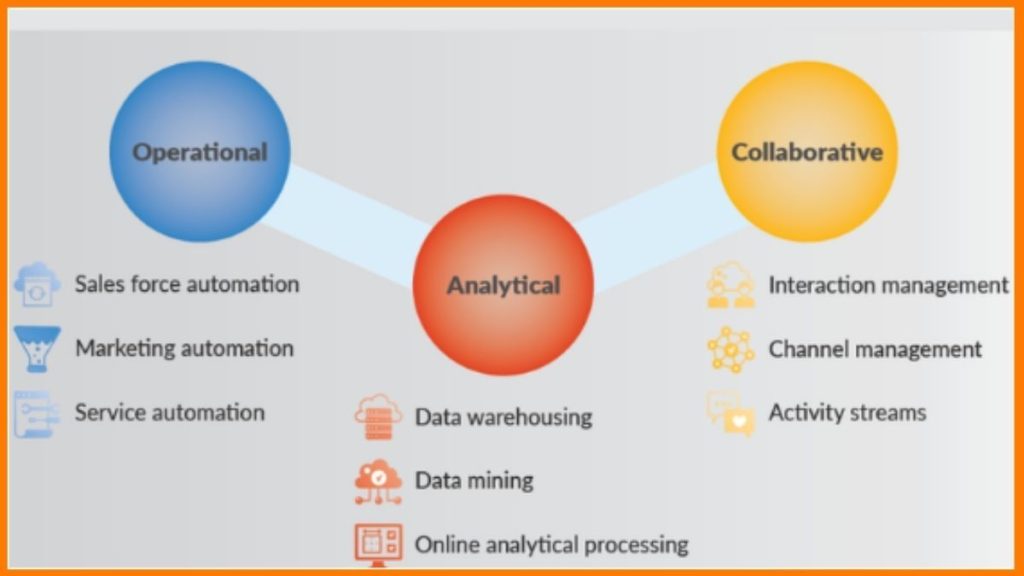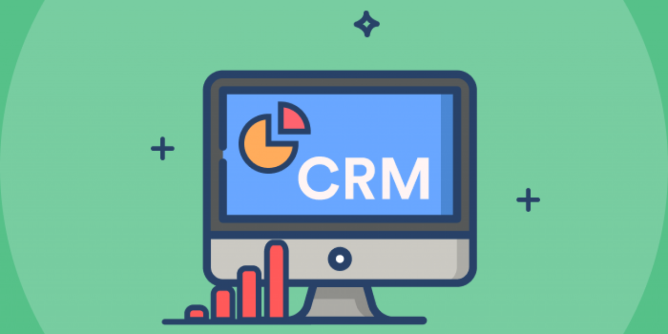Tag: What is CRM software?
3 Types of CRM Software and How to Choose One
CRM Software: CRM is a wide term that depends on the management of the various aspects of the route and customer relationships with the company. In this article, we will define a CRM, explore the types and help choose CRM software for you.
What is CRM software?
CRM Personalized CRM software (customer relationship management) is a tool that helps an organization better manage its relationship with its customers. He does so by storing data, analyzing data, and automating activities to improve the customer experience. There are currently three types of CRM software we will discuss. They are collaborative, operational, and analytical.
Types of CRM software You Need to know

1. Collaborative CRM system
The collaborative CRM focuses on data collection and roulette online sharing between different teams. The teams generally operate in silos, and the collaborative CRM, therefore, helps to break this barrier. An example is the sales team sharing information on a customer with the assistance team, customer service, and the marketing team. This will reach two objectives. The first is that the organization learns as a unit.
The company sharing information on various departments and locations, it is possible to take care of customers more efficiently. A customer calling to complain of a single problem (department or location) can easily have removed and ensure that his data has been removed, instead of restoring the customer’s complaints again. The other is that he helps follow and recover customer files if necessary.
The main features of the collaborative CRM software are:
- Interactions management: This function allows the team to monitor, follow and interact with its customers via any channel (emails, telephone calls, or face to face).
- Channel management: This feature allows the team to interact with customers on their different platforms. This feature can also help identify the best channels to reach customers.
- Document management: Some collaborative CRM software helps store data in a central location.
2. Operational CRM system
The operational CRM system focuses on the buyer’s life cycle. This system focuses on the attraction of customers (marketing), the sale to them (sales team), then keeping them as customers (service). The operational CRM takes them to the funnel of the sales cycle. If collaborative CRM is to improve customer experience and service, the operation consists more in transforming prospects into paid customers.
We can divide the operational CRM into three main characteristics, they include:
- Marketing automation: This automation makes it possible to simplify the operation of the marketing team. The marketing team can define tasks such as the creation of campaigns by e-mail so that the customer’s action triggers the sending of mail. Think when you subscribed to a newsletter and receive a thank you or welcome email by email on board. The content of the emails is also triggered by the place where the customer is on the buyer’s journey. This automation can also apply to other automation techniques such as the recommended content to a customer on the company’s website according to past purchases.
- Sales automation: This automation gives the sales team vital information on prospects. Usually, information such as custom dashboards helps to classify the likelihood that an advance to buy a product and therefore to whom the members of the sales team should continue. Automation of sales simplifies tasks such as meeting meetings with prospects, email planning, and call monitoring. The automation of the sales team also separates regular customers from the Great. Its system alerts the sales team to precious customers who will pay more.
- service Automation: Automation of services automates services for customers. The automation process is in the form of live cats, chatbots, and FAQs (frequently asked questions). He is self-service to customers.
3. Analytical CRM system
An analytical CRM system is used for data collection, data exploration, and report production that contributes to making strategic decisions. The use of this system is in its name. It collects, stores, integrates and processes the data to be used. The three key characteristics of the analytical CRM system include:
- Data Warehousing: Data storage is as the name suggests. It collects and stores data from different sources and channels. You have access to all data concerning customer interaction with the company at the departmental level.
- Data Mining: data exploration is what CRM software is to bring out insightful reports. You can get information based on customer models and trends to improve your sales tactics. It classifies, associates, and finds anomalies to provide useful information. An example is to ask the software to create a graph showing which products were sold the most and the age group and the location of those who bought them.
- Data Forecasting and Predicting: One of the powerful characteristics of the analytical CRM is the forecasting and forecasting of behavior, trends, and results of customers based on historical data, which can become invaluable for teams.
